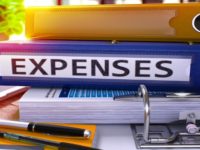Preparing for tax time can be daunting – especially as a small-business owner when it adds to your already exhaustive to do list. That’s why we’ve put together some do’s and don’ts when preparing for tax time.
Do’s
Ensure year-round recordkeeping
Record–keeping can make all the difference come tax time. Add each transaction to your accounting system and separate personal from business items. Keeping on top of things throughout the year, means less to prepare in the leadup to EOFY.
Using intuitive accounting software like Xero, and cloud folders like Fileshare will increase efficiencies and free up time for you to spend on improving your product or service, speaking with customers and strategising.
These programs enable document sharing so that changes can be made in real time and document control is maintained.
Which introduces our next tip…
Invest in software training
Time constraints mean small business owners aren’t always across the full capacity of their accounting package. While the evolution of accounting software has simplified the bookkeeping task for small business owners, being unable to use the software and or take advantage of all its functions can create inefficiencies.
Set time aside each year for training and assess whether it’s the right accounting package for you.
Write-off expenses to maximise tax deductions
To reduce your tax liability and maximise deductions at tax time, review your debtors, inventories and fixed assets, and accordingly write-off:
- Debts that are not recoverable.
- Stocks that have become obsolete.
- Assets no longer able to generate revenue.
Many expenses can be written off, if they have a legitimate purpose within the business including commercial rent, equipment and business travel.
There are instant asset write-off and temporary full expensing rules which may (subject to your business qualifying) allow full write-off of depreciating assets. Rules and relevant dates and thresholds have changed in recent months so please contact William Buck or your chartered accountant for clarity.
Don’ts
Don’t overlook key tax due dates
Heavy workloads and competing priorities mean small business owners sometimes struggle to prioritise their tax obligations. It’s highly important to prioritise these obligations or you could be hit with ATO penalties and interest. Non-compliance can also flag you with the ATO for a more detailed review or audit.
Contact an accountant to understand your tax obligations and prioritise key dates. Advisers can help with entering an instalment arrangement with the ATO.
Don’t exercise inadequate maintenance of financial records
Lock accounts relating to the financial year so that date remains accurate, ensuring easy transition into the new financial year. Create a separate copy of the accounts and back it up (print key reports like P&L, Balance Sheet and general ledger listing for the financial year and store them securely).
Do not overdraw!
Finally, if you have a company and you take money out of the business, ensure the net position of funds introduced less any funds you withdrew is not overdrawn.
If you’ve taken money out of the company, work with your advisors prior to year-end to determine whether the amount represents:
- Salary and wages (report this on your Business Activity Statement).
- Dividend (Dividend resolutions and statements to be prepared).
- Formal loan agreement repayable to the relevant ATO team with appropriate ATO interest rates applied.
If you do not get the treatment correct, you may end up with a deemed dividend that will usually be a poor outcome for the company and yourself.












